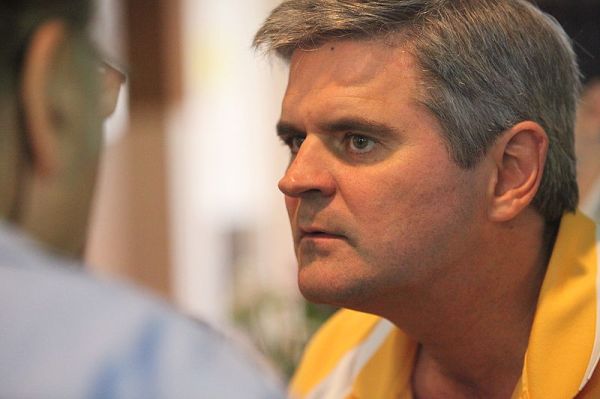Detroit might seem like an odd place to hold a tech conference, but when Steve Case, CEO of Revolution and founder of AOL (TechCrunch’s parent company), took the stage this morning at Techonomy Detroit, he said the event was not just a good idea. It was a great one.
For one thing, Case said it’s part of the “awesome story of Detroit fighting its way back and not giving up.” More broadly, there’s a trend that he calls “the rise of the rest” — the emergence of cities around the country that are trying to become “entrepreneurial hotbeds.”
Techonomy’s David Kirkpatrick, who was moderating the interview with Case and Detroit Venture Partners’ Josh Linkner, also talked about the growth of tech outside of Silicon Valley, but from an international perspective. There’s a sense of urgency to these issues, he said, because countries like China, Taiwan, and Malaysia are building tech industries, and if the United States doesn’t make similar investments, we’re going to be “way behind the curve.”
Case argued that America’s economic growth has been built around entrepreneurship. In fact, he said the current generation of entrepreneurs, especially the ones who are launching companies that are “built to last” rather than “built to flip,” are “American heroes.”
“We are still the most entrepreneurial country in the world,” he said, but other countries are figuring out the keys to America’s success and catching up.
Holding onto the lead doesn’t just mean encouraging consumer Web companies, but finding the industries that are going to “drive the future.” Case pointed out that we’ve seen a number of revolutions in the past — the agricultural revolution, the industrial revolution, the finance/media revolution, and most recently the “technology revolution.” Now the U.S. needs to position itself to ride “the next wave.”
Linkner said that Detroit, in particular, needs to “shed our skin like a snake does.” That means it has to focus on the future and “stop apologizing” for mistakes made in the past. That also means “playing to your strengths” and becoming “the Detroit of Detroit,” rather than the Silicon Valley of the Mideast.
Linkner also said Detroit needs to encourage a “culture of risk.” Right now, if you try to do something new and you fail, that’s seen as a source of shame. Instead, it should become a “badge of honor,” as it is in Silicon Valley.
Another opportunity that both Case and Linkner pointed two is crowdfunding, as enabled by the recently-passed JOBS Act, which I covered in another post.
After the on-stage session, I asked Case whether he thinks there are specific industries Detroit should focus on. There isn’t any one in particular, he said, but he did point to two general buckets. First, there are companies that can now be created less expensively because of the Internet and be started anywhere. Second, there are “a variety of different sectors going to be transformed over the next 25 years,” like education and health care.
